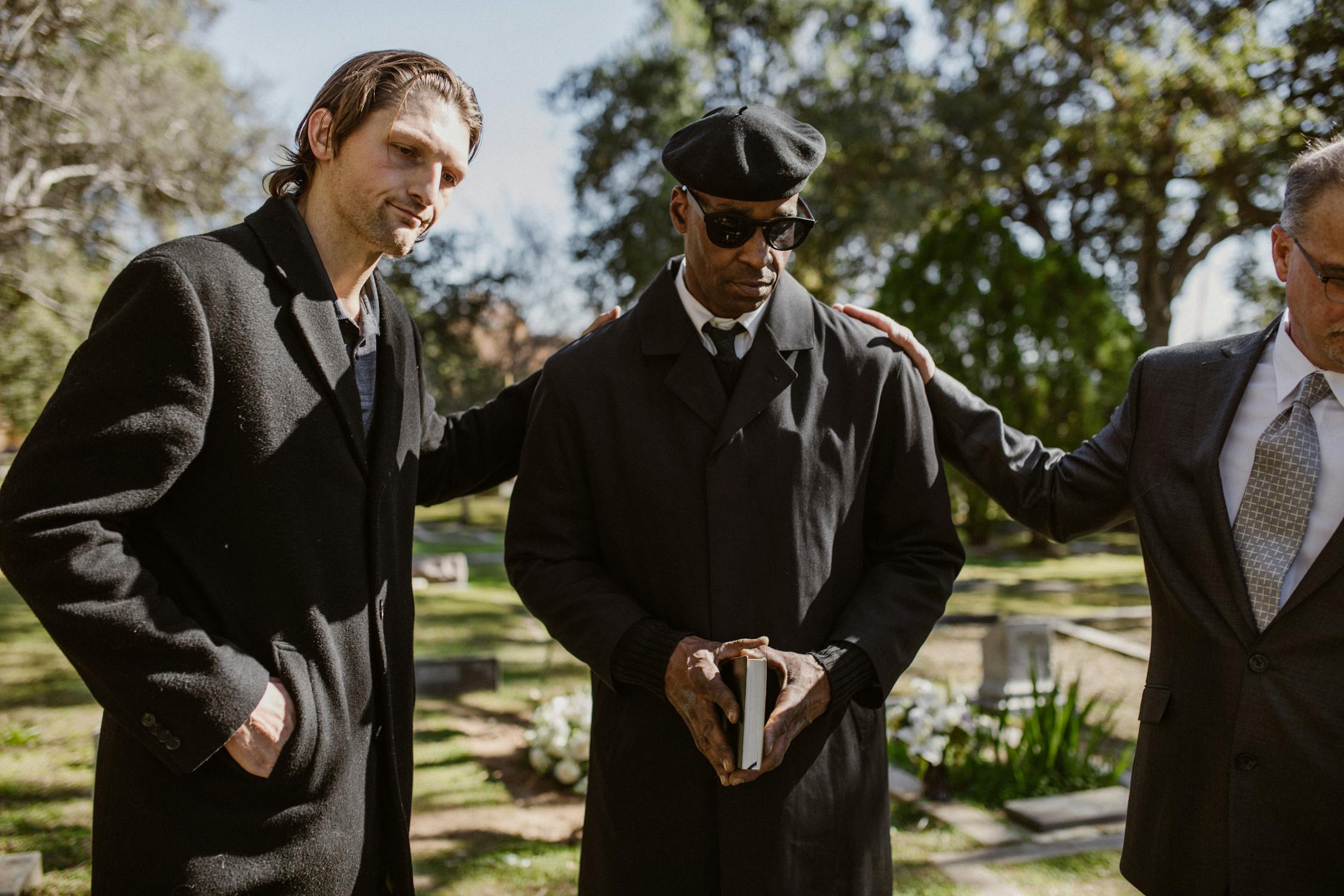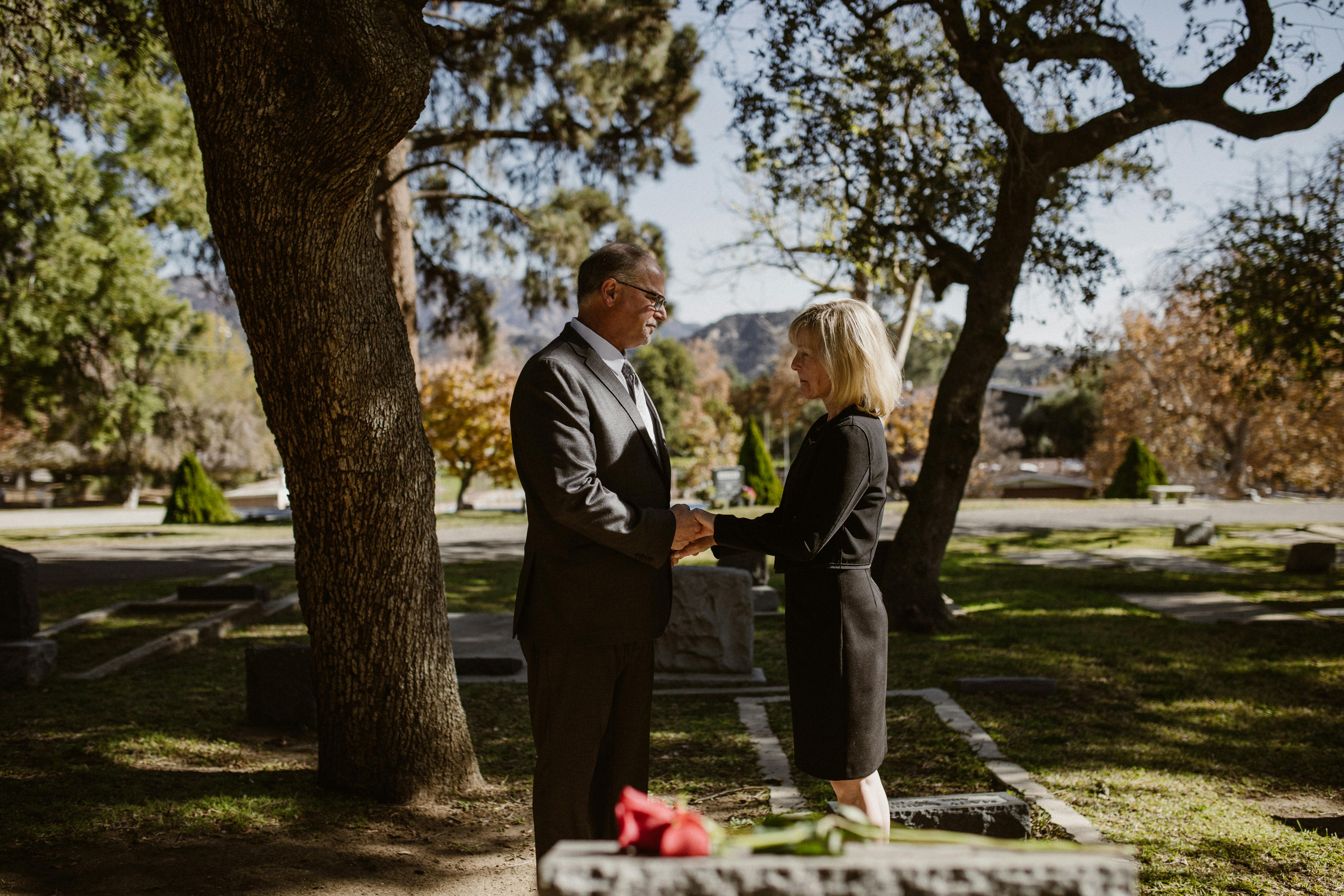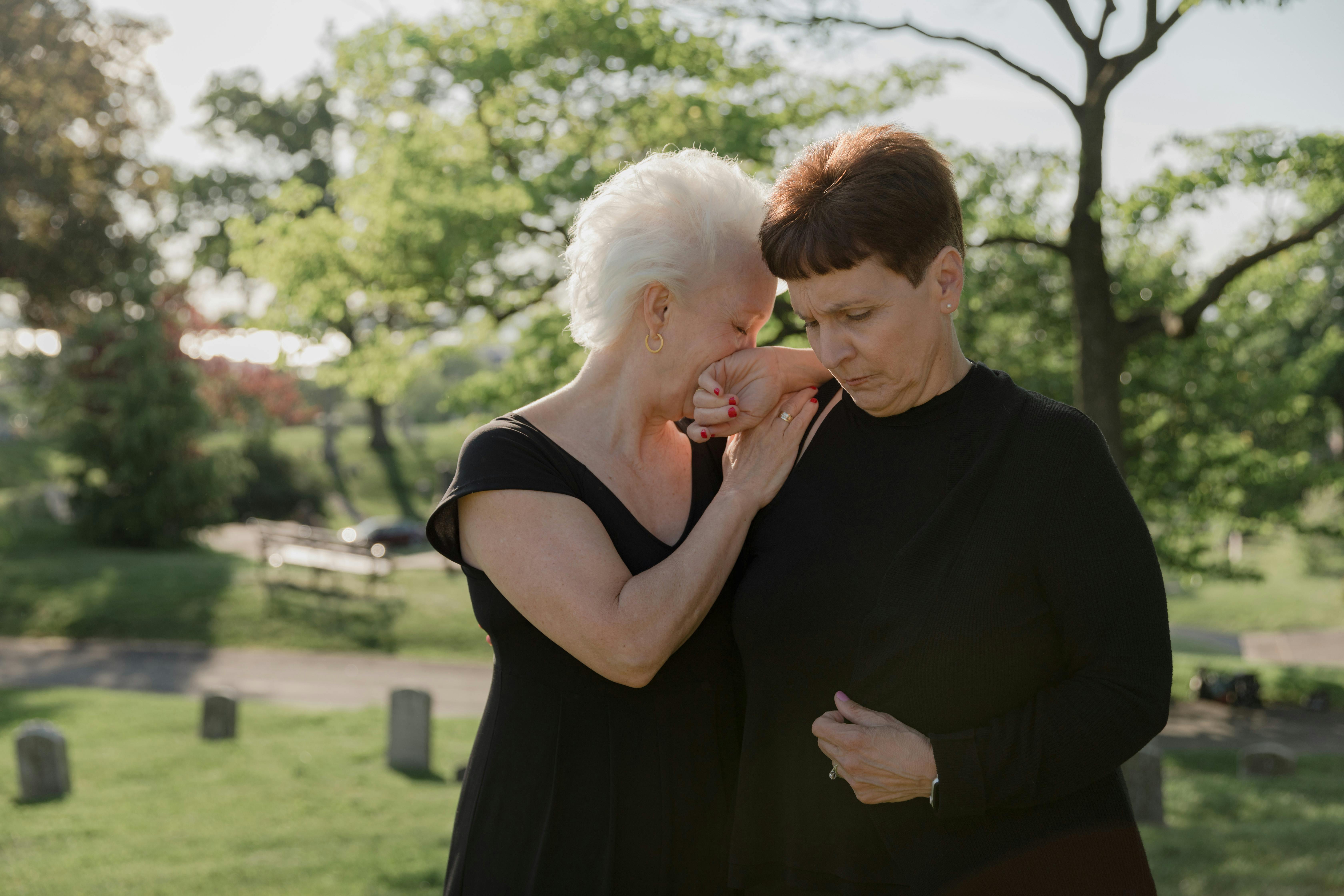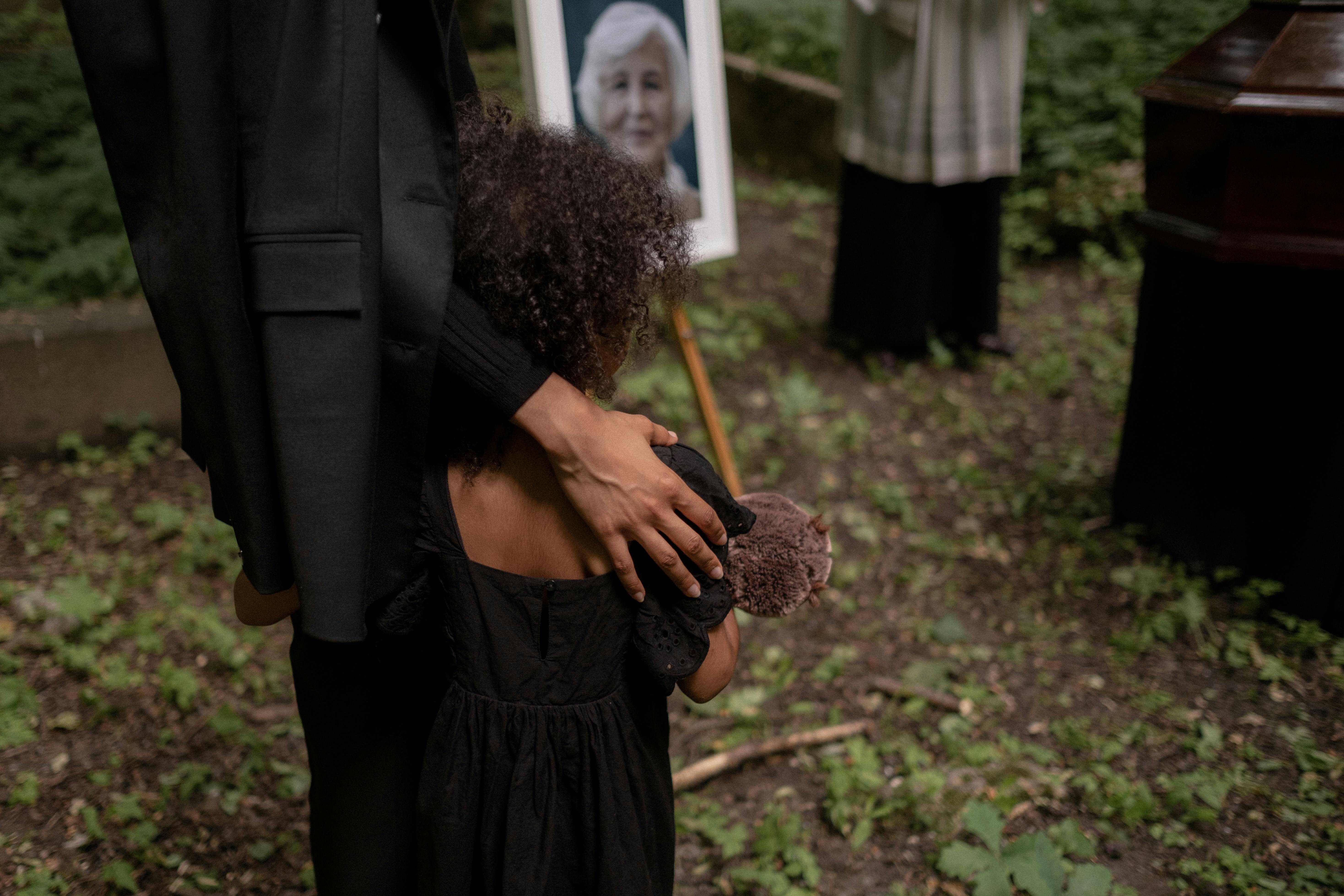Funerals bring out a wide range of emotions, and people often struggle with what to say in the moment. While most comments come from a place of comfort or support, some words can unintentionally cause pain. Knowing the things you shouldn’t say at a funeral can help you be more mindful, respectful, and truly helpful to those grieving. Grief is complex, and each person handles it differently. Even well-meaning phrases can miss the mark, especially when someone is in emotional pain. If you want to show compassion and care, avoid these common missteps during one of life’s most delicate gatherings.
“They’re in a better place now”

While this phrase may feel comforting to some, especially those with strong spiritual beliefs, it can feel dismissive to others. Not everyone shares the same views about the afterlife, and even those who do may not find it helpful when they are hurting in the present. Saying someone is in a better place may make it seem like their death should be celebrated rather than mourned. This can create a disconnect between the mourner’s deep sense of loss and the message being delivered. Instead, offer a simple expression of sorrow or say you are thinking of them during this difficult time.
“Everything happens for a reason”

This is one of the most common things you shouldn’t say at a funeral. It implies that there’s a hidden justification behind the pain, which can feel invalidating to someone who is grieving. While the phrase may be intended to comfort, it risks minimizing the raw emotion of the moment. Grieving people often don’t want to hear logic or reasoning, especially when the loss feels unfair or senseless. A better approach is to sit with them in their pain without trying to explain it away. Your presence and quiet support often mean more than philosophical answers.
“At least they lived a long life”

Acknowledging someone’s long life may seem like a positive comment, but during a funeral, it can come across as diminishing the significance of their death. Whether someone lived for 95 years or passed away unexpectedly, the loss still hurts. Every life is unique, and every loss is personal. This comment can unintentionally dismiss the mourner’s sorrow or suggest they should feel less pain. Instead, focus on what the person meant to their loved ones or share a memory that honors their presence. Empathy should be the priority, not perspective.
“I know exactly how you feel”

It’s natural to want to relate to someone who is hurting, but claiming to know exactly how they feel can seem self-centered. Even if you’ve experienced a similar loss, grief is deeply individual. Saying this shifts the focus from their pain to your story, which might not be what they need at that moment. People want to be heard and acknowledged, not compared. A better response is, “I can’t imagine how hard this must be, but I’m here for you.” This keeps the attention on their experience and shows that you care without trying to take over the moment.
“It was their time to go”

This phrase might be rooted in faith or fate, but it rarely provides comfort to someone mourning a loved one. It suggests a sense of inevitability, which can make the death feel even more final and less personal. For many, death doesn’t feel like part of a bigger plan when they’re in the depths of grief. Saying it was their time may shut down the mourner’s need to express their sadness or confusion. Instead, allow them to speak openly about their loss. A grieving person needs understanding more than conclusions.
Read More: Your Mother’s Funeral Will be The Day You Realize You Lost A Best Friend
“At least they didn’t suffer”

While meant to highlight a small mercy, this phrase still focuses on the circumstances of the death rather than the pain of the loss. The person left behind is likely not comforted by comparisons of suffering. They are dealing with the absence of someone they loved, and that pain is real regardless of how the death occurred. Saying this can feel like you are trying to rush them to acceptance. A better way to offer support is to say something like, “I’m so sorry for your loss. I’m here if you need anything.”
“Let me tell you about when I lost…”

Turning a funeral conversation into your own story, even with good intentions, is not appropriate in the early moments of someone else’s grief. It’s one of the more subtle things you shouldn’t say at a funeral, but it still shifts the emotional spotlight. Grief is not a contest or a bonding opportunity for shared tragedy, especially during such raw moments. The person mourning doesn’t need to process your pain on top of theirs. If you feel compelled to share later, wait for a time when they are open to talking. Keep the focus on their needs now.
“Be strong”

Telling someone to be strong can add unnecessary pressure to keep their emotions inside. Funerals are a time when people should feel safe to cry, reflect, and express whatever emotions arise. Saying “be strong” may imply they need to hold it together for others, even when they feel like falling apart. It suggests that grief should be hidden or managed rather than felt and processed. A more supportive approach is to simply offer a hug, a hand to hold, or a listening ear. Give them space to feel what they need to feel without judgment.
“Don’t cry”

One of the worst things you shouldn’t say at a funeral is “don’t cry.” Grieving involves tears, and crying is part of healing. Telling someone not to cry invalidates their emotional response. It can make them feel embarrassed or uncomfortable, especially in front of others. Grief must be allowed to flow, not be shut down by someone else’s discomfort. Instead of discouraging tears, offer tissues or a gentle word of comfort. Accept the silence, the sobs, or whatever form their sorrow takes. Your job is to support, not to manage their reaction.
“God needed another angel”

This phrase often appears in religious circles, but it can feel hollow or even hurtful depending on someone’s beliefs. It suggests that their loved one was taken for a reason beyond human control, which can feel unjust or cruel. For grieving families, the idea of their relative being turned into an angel may not be comforting. It may even anger those who are trying to understand why this loss had to happen. If you want to reference faith, keep it personal, such as “I’m praying for you” or “May God bring you peace.” Let the family’s beliefs guide your words, not your assumptions.
Read More: What Happens After Death: Man Dies for 6 Minutes and Reveals His ‘Terrifying’ Experience
Conclusion

When attending a funeral, words carry more weight than usual. Even kind-hearted remarks can come across as insensitive if not chosen carefully. Understanding the things you shouldn’t say at a funeral allows you to offer true comfort without causing unintended harm. Silence, a simple “I’m so sorry,” or a warm hug can say more than any phrase meant to fix the situation. In grief, your presence and genuine care are more valuable than the perfect words. Speak less, listen more, and remember that empathy often speaks loudest when we keep things simple and sincere.
Disclaimer: This article was created with AI assistance and edited by a human for accuracy and clarity.

